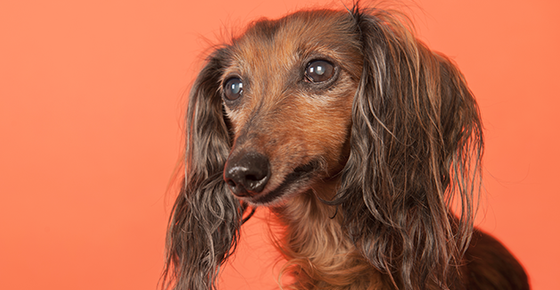
Glaucoma is typically a disease affecting middle- age to older pets. The symptoms can be very insidious in that they may not be noticeable at first, but eventually you may see a red eye or a dilated pupil, and ultimately, as the disease progresses, you can see that the eyeball is larger than normal.
Glaucoma Is Serious
Glaucoma is increased pressure inside the eye resulting from fluid build-up within the eyeball from fluid not draining properly. If your pet doesn’t receive veterinary care, the condition damages the optic nerve, which can lead to blindness. When glaucoma occurs in one eye, it often eventually occurs in the second eye. When glaucoma occurs in both eyes, blindness may seem to occur suddenly.
The Two Types of Glaucoma
Your pet can develop one of two types of glaucoma: primary or secondary. Primary glaucoma occurs spontaneously. Secondary glaucoma occurs because of another condition, such as cataracts, eye trauma, or cancer of the eye.
Symptoms to Watch for
You may detect symptoms of glaucoma, but only your veterinarian can determine whether glaucoma is the issue versus another condition, such as uveitis or a corneal ulcer. The doctor will use a special instrument to measure the pressure within the globe.
Symptoms of glaucoma include a cloudy eye that tears with a red sclera (the white part of the eye). Your pet may also experience impaired vision. The eye might look swollen from the fluid buildup in the later stage of the disease.
Susceptible Breeds
No particular cat breed is more susceptible to glaucoma, but cocker spaniel and basset hound dog breeds have a higher risk of developing glaucoma. Other dog breeds that have a predisposition to glaucoma are Terriers, Beagles, Poodles, Chow-Chows and Dalmatians. Glaucoma is uncommon in cats, according to a recent study published in Veterinary Ophthalmology.
Treatment Options
Usually, the earlier glaucoma is diagnosed and treated, the better the outcome for your pet. Your dog might lose vision in one eye, but your veterinarian might be able to stop the spread to the other eye. Treatment includes eye drops to reduce the pressure, and sometimes also oral meds. Some ophthalmologist also try cryotherapy or laser treatment. Occasionally a glaucomatous blind eye becomes very painful, and the best option is to remove the eye surgically.
Sources:
American Animal Hospital Association, Research Aims to Unravel Glaucoma Mysteries in Companion Animals
American Veterinary Medical Association, Research targets conditions of older cats and dogs. August 15, 2006
NC State University College of Veterinary Medicine, Ophthalmology. Special Services, Technology, & Information
Veterinary Ophthalmology, Feline Glaucoma. A Comprehensive Review